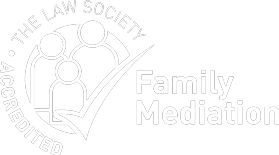Why what you say after a separation really matters
“Even Kanye shouldn’t be trash talking on social media unless, as may be the case, he has a divorce court death wish.” The words of a New York family attorney, reported in a divorce feature in the Independent. The piece referred to Kanye West (Ye) as having been ‘ranting publicly about Kim Kardashian in the name of fatherhood, which many saw as bullying and intimidation.’
It’s not only celebrities that enter these choppy waters. Their following may be on a different scale to that of the rest of us, but taking to social media to share information about a personal situation – good or bad – is now endemic. It has become second nature for people to put views, experiences, feelings out there. And with this is an ever-present danger that potential repercussions will either not be thought through or will be dismissed as secondary to any gains to be made from the post.
As a family lawyer, this is an issue that has become increasingly prominent in the discussions I have with clients who are going through separation and divorce. Pre-social media, it was all about advising clients to take care not to bad-mouth their ex in the pub, in work, in other social settings. That was our ‘public’. These days of course, there are far more ways to communicate, far more widely – and there are far more opportunities to make a bad decision.
Why does this matter?
Divorce can be destructive enough. When two people separate, it’s extremely rare for there to be no friction at all between them; much more likely is some degree of tension, animosity, bitterness, frustration. As family lawyers, we work hard to help clients take as much heat out of the situation as possible, but this can be set back by displays of hostility and perhaps even bullying. It can make it extremely difficult for the two people to cooperate with one another in finalising their divorce. (In fact, no-fault divorce, introduced last month, specifically aims to remove much of the blame-related negativity that has become synonymous with the divorce process.)
Lack of cooperation is a problem because it can write off the option of using alternative dispute resolution methods, like mediation and collaborative law. It is widely recognised that when two people use these mechanisms to genuinely work together, things can get wrapped up far more quickly and more amicably than if the task were to be put in the hands of the court. Collaboration can also help build a more positive ongoing relationship that may need to exist for the benefit of the couple’s children.
Staying positive, keeping calm and biting your tongue through the challenges that separation and divorce bring is the ideal, but it’s an extremely big ask. It’s unrealistic to expect emotions not to surface at all. In fact, I firmly believe that it’s healthy to vent, from time-to-time – but this needs to be to the right people and in the right way. It’s the reason I always ask clients if they have a trusted friend or family member who, alongside me, can help be that shoulder to rely on during their divorce. Because where that extra support doesn’t exist, there is a greater chance of emotions being directed in an unhelpful direction. Social media is one potential problem. Children is another. In the most serious cases, where a child is intentionally fed negativity about their other parent, their relationship with that parent may break down completely. It’s a legal concept called ‘parental alienation’, and it’s tragic.
And then there is the issue that that New York attorney referred to as the ‘divorce court death wish’. How do the things you’ve said, and the things you’ve done, look? What will a judge make of them and of you? How might they be used against you?
While I always aim to keep cases out of court, some need judicial input. Always bear this in mind. Remember that, as with any other sort of legal action, evidence will be collected, legal arguments built, impressions formed. The way you conduct yourself, even in the heat of the moment, really could affect the outcome.
So, my advice while you’re in the throws of separation or divorce is:
- Avoid social media. (Be aware, too, that it is a criminal offence to publish information which could identify a child involved in family proceedings.)
- Do everything you can not to get drawn into commenting on your ex’s behaviour, character or actions, unless this is in consultation with your family law solicitor.
- Be extremely careful in any communications with your ex.
- Ideally, limit your conversations about your ex to those you have with your solicitor and other professional advisors. As a back-up, have on speed dial a friend or loved one who you trust implicitly, for those times when you really need to get something off your chest.
For advice about separation, divorce or family proceedings, contact Susi on 01892 337540 or email Susi Gillespie.











